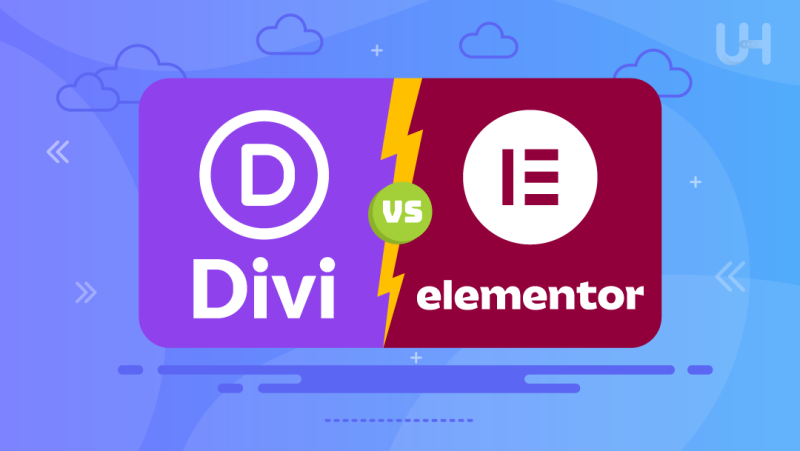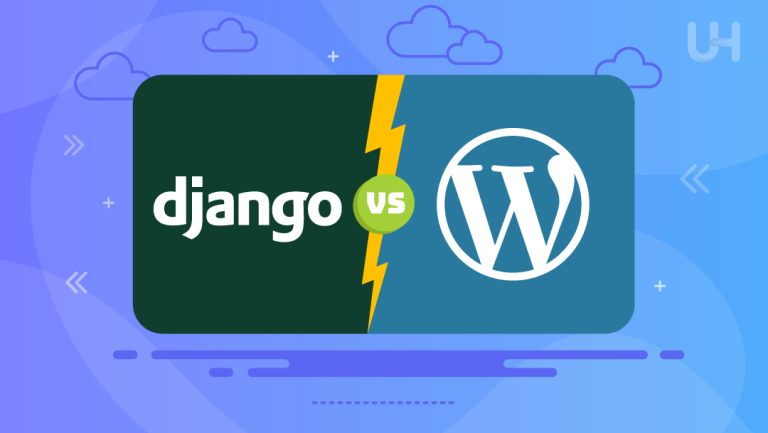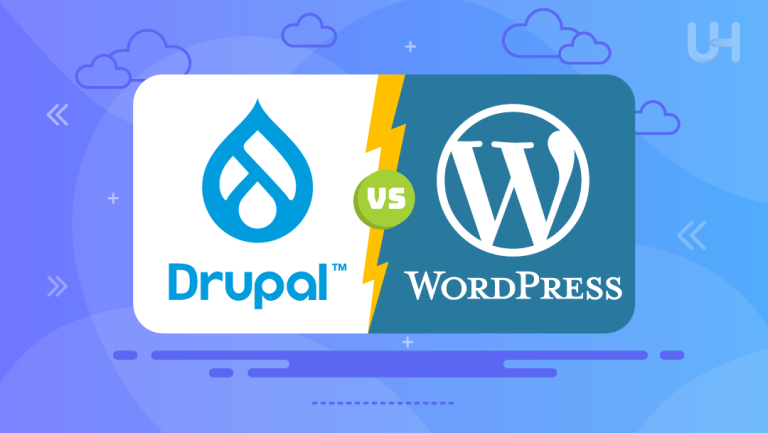Are you building a WordPress website? You will need a page builder to create, edit, and customize your website’s layout without writing a single line of code. But with several page builders available in the WordPress plugin directory, which one do you use? In this article, we compare the two most popular page builders (Divi vs Elementor) to help you find the best tool.
Page builders are some of the most essential WordPress extensions you will use as a web developer. They let you create custom web pages using premade templates. However, to answer the question of Elementor vs Divi, which is better, you will have to dive deeper into each of them to compare their key features and understand the pros and cons of each. So, let’s dive in.
Divi vs Elementor: An Overview
Divi is a no-code WordPress page builder with an excellent drag-and-drop builder, plenty of modules, and premade templates to simplify website development. The plugin comes with a backend editor, allowing people with technical know-how to customize the templates using lines of code.
Elementor is also a no-code WordPress page builder that offers similar features. The widget is widely used since it provides excellent add-on support and is available for free. The premium version further enhances the tool’s capabilities, such as custom CSS, WooCommerce integration, theme builder, etc.
Divi: Key Features and Functionalities
Like the best WordPress membership plugins, Divi has a front-end visual builder that helps amateur web developers design web pages easily. Here are the top features.
- Drag-and-drop Builder: The front-end builder allows you to add, delete, or move elements without technical expertise or navigating confusing backend options.
- Visual Editor: Use intuitive visual controls to design web pages in real-time and see what the final page will look like.
- Custom CSS Control: You can easily combine Divi’s visual design controls with custom CSS to create a stunning website layout.
- Customizable Design Options: Get thousands of website designs and unique page elements and enjoy complete control over your website.
- Undo, Redo, Revisions: You can easily undo, redo, and revise web pages without browsing through a web of codes.
Pros
- Compatible with different WordPress hosting, plugins, and themes
- Offers complete control over customizable layouts
- Fully responsive themes that work on all devices and display resolutions
- Vast visual interface with flexible styling options
- Get real-time visual updates with the drag-and-drop builder
Cons
- Has a steep learning curve and is suitable for expert users
Elementor: Key Features and Functionalities
Elementor is one of the most popular website builders globally due to its ease of use. Like the best WordPress gallery plugins, it has an excellent drag-and-drop builder. These are its key features.
- Drag-and-Drop Editor: You can create visually stunning web pages with the beginner-friendly drag-and-drop editor.
- Pixel Perfect Pages: Create responsive websites with precise positioning of site elements and design complex layouts with pinpoint accuracy.
- Zero Coding Required: Build, customize, and edit every part of your website without writing a single line of code. Elementor has 100+ SEO-friendly widgets for various operations.
- Flexible Editing: Customize every page with powerful editing features and create a wide range of web pages, from product pages and about us to forms, 404, and more.
- WooCommerce Integration: Customize every part of the buyer’s journey, from optimizing the cart layout to the checkout page and more.
Pros
- Elementor is beginner-friendly and fully customizable thanks to the drag-and-drop builder
- It is compatible with every dedicated, shared, or enterprise WordPress hosting, third-party plugins, and free and paid themes
- Has a rich template library with customizable themes
- The page builder is optimized for speed right out of the box
- Elementor has a low learning curve. Although experts can add lines of custom code in the backend editor
Cons
- The web builder is a little buggy
- Consumes more resources than Divi
Elevate Your Business with Fast WordPress Hosting
Whether you plan to launch a business website, start a blog, or open your e-commerce store, our Fastest WP Hosting solutions offer the power and flexibility you need for both Windows and Linux operating systems.
Divi vs Elementor: Which Should You Use?
Elementor or Divi, which is the right WordPress webpage builder for you? Here is a detailed comparison of Divi vs Elementor to help you make an informed choice.
Ease of Use
Both Divi and Elementor offer a beginner-friendly drag-and-drop builder. If you are handy with WordPress extensions, such as FAQ or live chat plugins, you will have no problem getting used to Elementor’s drag-and-drop visual editor. While Divi is also beginner-friendly, it does not offer as many widgets. So, you must rely on your coding skills for many essential functions.
Performance
Although both page builders are optimized to improve page load speed, Elementor has a slight edge over Divi. Pages created by Elementor are slightly smaller, reducing load times. Moreover, you can further improve page load speed with the help of the best WordPress performance plugins like WP Rocket and Autoptimize.
User Interface
The Elementor UI will remind developers of the stock WordPress front-end builder. On the other hand, Divi has a custom UI. Therefore, amateurs will find it easier to use Elementor. Furthermore, if you want all design options at the click of a button, Elementor is the more practical choice. However, if you enjoy building pages from the ground up, you will enjoy Divi’s minimalistic UI.
Prebuilt Templates
Both Divi and Elementor offer a wide range of premade templates that help build a wide range of web pages, like the home page, about page, contact page, and more. Divi has 200 layout packs with over 2,000 premade templates, while Elementor offers around 300 premade templates. Although Divi clearly has the edge in the sheer volume of premade templates, Elementor has a trump card. It has around 100 website kits for developing sections like headers, footers, popups, and listings without coding.
SEO Friendliness
Between Divi vs Elementor, the latter is more SEO-friendly. Divi uses shortcodes when you use modules to design your website. However, these codes remain on your website after the module is deleted or deactivated. Therefore, your website contains additional codes, which can slow down your website and affect SEO. On the other hand, Elementor uses clean codes that boost website performance.
Compatibility
Third-party plugin compatibility is a major factor when comparing Elementor vs Divi. While the Divi page builder works well with most themes, it is slightly more compatible with the Divi theme. On the other hand, Elementor is compatible with most third-party themes and plugins available in the WordPress directory. You can even design web pages with the default Gutenberg editor and move to Elementor with a single click.
Support
Both (Elementor vs Divi) web builders offer robust support to premium customers. Divi provides 24/7 assistance over the helpline, live chat, and comprehensive documentation for features and customizations. Elementor PRO users get 24/7 live chat support, regular plugin updates, and unrestricted access to documentation. Since Elementor has a bigger user base, finding online tutorials and how-to guides is relatively simple.
Add-on Features
Add-ons are an excellent solution to unlock advanced functionality without writing lines of code. This is where Elementor takes the lead. While Divi has several useful add-ons, the numbers are limited compared to Elementor. The latter offers a wide range of add-ons, from buttons, a navigation menu, and an audio player to a WooCommerce builder, social feeds, and more.
Conclusion
In the battle between Divi vs Elementor, both WordPress web builders are equally capable. Hence, the answer to which should you choose depends on your requirements. If you are an amateur web developer, you will find Elementor’s beginner-friendly interface easy to use. However, for more complex customizations, Divi’s custom CSS capabilities will come in handy. Overall, both plugins are feature-packed. So, the best web page builder boils down to your requirements and appetite for customizations.
If you are planning to create a stunning WordPress website, check out Ultahost’s WordPress VPS Hosting solutions. Enjoy extreme speed, free DDOS protection, 24/7 support, and a free 30-day trial, starting at just $5.50/month.
FAQ
Divi vs Elementor: Which is better?
Elementor is a beginner-friendly WordPress page builder that uses a drag-and-drop-builder for convenience. On the other hand, Divi is more coder-friendly, meaning it is more suitable for those with technical expertise.
Can I use both Divi and Elementor?
You can install Divi and Elementor on a WordPress website simultaneously. However, the modules and templates cannot be used interchangeably.
Is Divi better than Elementor?
Divi is better than Elementor only if you plan to use the premade templates offered in the layout library. Dive offers over 200 layout packs containing 2,000+ premade templates, which is significantly more than what Elementor offers.
Is Elementor better than Divi?
Elementor is better than Divi if you want the convenience of a no-code page builder. The free version offers 40+ valuable widgets, and the paid plan provides 50 additional widgets.
Elementor vs Divi: Which is optimized for SEO?
Divi and Elementor are both optimized for SEO. However, Divi doesn’t automatically delete shortcodes when you remove a module from your website. Therefore, they can accumulate over time and slow down your website.










